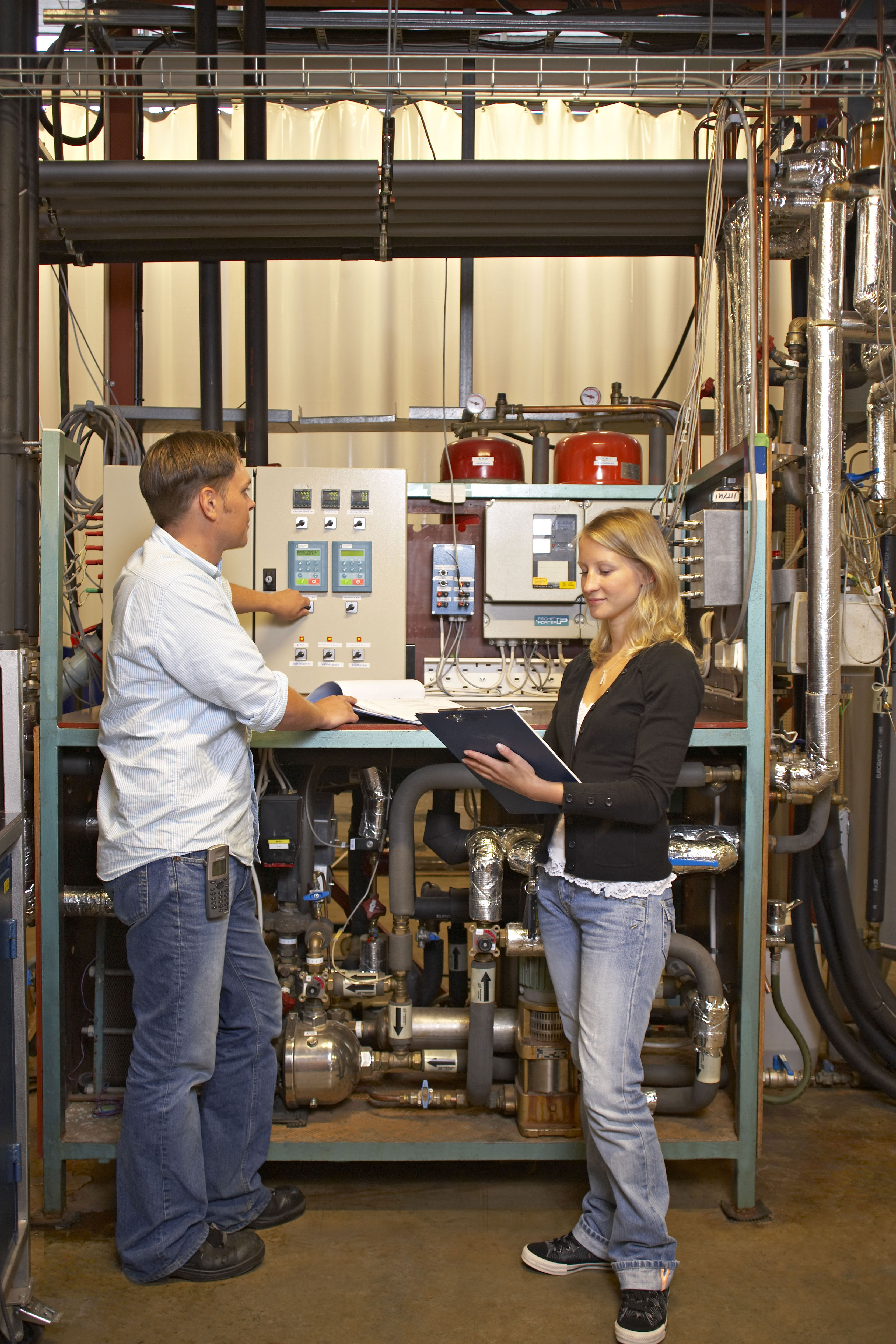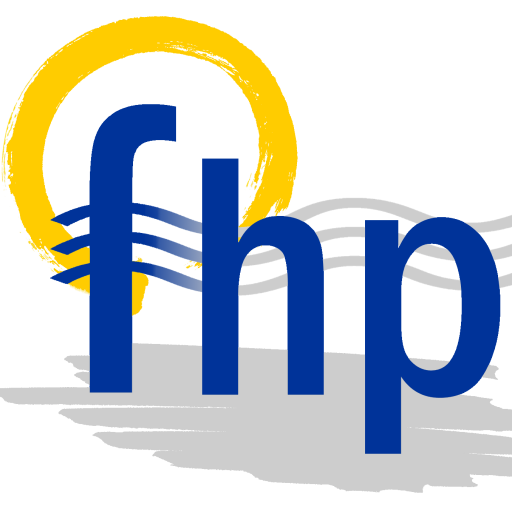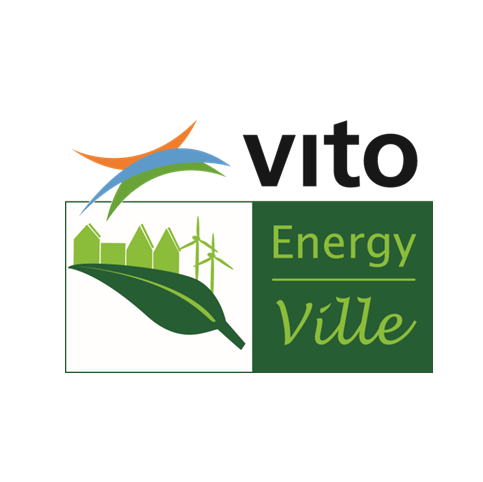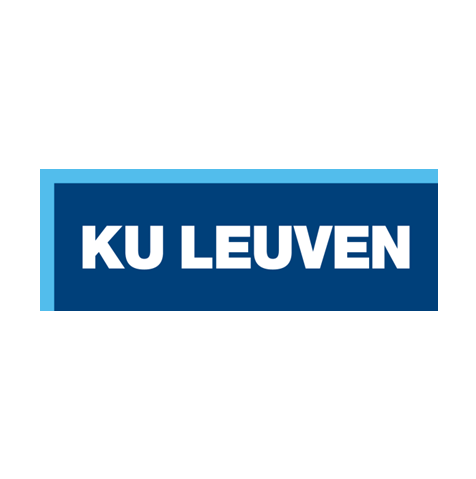
Flexible Heat and Power,
connecting heat and power networks
by harnessing the complexity
in distributed thermal flexibility

This project has received funding from the European Union’s Horizon 2020 research and innovation programme under grant agreement No 731231
The inertia of power to heat solutions constitutes an enormous potential for electric flexibility. Thermal inertia of buildings and thermal storage holds a lot of flexibility. Heat pumps, central heating and cooling installations, and forced ventilation systems act as interfaces connecting the thermal storage and inertia to the electrical distribution grid.
Power to heat solutions can be used for absorbing the excess of renewable generation and avoiding curtailment while managing local power congestion, voltage stability in the grid and avoiding reversal power flows, as well as minimizing Renewable Energy Sources (RES) production imbalance.
European HVAC annual consumption (TWh)
%
Electricity consumption

Dynamic Energy Resources with thermal inertia can provide services to Renewable Energy Sources (RES) owners, grid operators, aggregators and actors on the power market, while saving energy in the buildings. Flexibility harnessing using heat to power solutions enables to deploy large-scale renewable.
The Flexible Heat and Power (FHP) project will develop a Power-to-Heat (and Cooling) solution package that manages this complexity through an easily accessible interface aimed at buildings and power grid actors. The project will include 2 demonstrators that will start being installed in ten months, in August-September 2016, in Uden a Municipality of Noord-Brabant, Netherlands and in Karlshamn Municipality in Blekinge County, Sweden.
Objectives
Main objective is “To Secure mitigation of RES curtailment in the electric distribution grid by dynamic coalitions of power-to-heat resources”.
FHP has the potential to provide total thermal flexibility with the aim of increasing the share of renewables by 22% over the total electric consumption from current technical limits (40%).
FHP will develop operational strategies based on power-to-heat solutions. Electric flexibility provided by DER (Distributed Energy Resources) will combine with thermal inertia
- to shift electric load to those moments when the Renewable Energy Sources (RES) are producing more electricity than needed, specifically those related to heating or cooling.
- to support the technical constraints of the Distribution System Operator (DSO). For example by connecting heat pumps, it is possible to create large energy storage where electricity can be stored as heat utilizing the inertial properties of buildings.
Expected Results and Impact

Competitive products and services delivered to the market: Grid Flexible Heat Pump | Building level agent | Dynamic Coalition Management agent
Novel methodology that uses flexibility activations for real time voltage control based on a learned grid sensitivity model
Cost effectively conversion of excess of electricity to heat in order to avoid curtailment and to provide services to the grid
A contribution to integrate large share of renewables (more than 50% by 2030) in a stable and secure manner
A contribution to ongoing policy developments in the field of the design of the internal electricity market, of the retail market and ongoing discussions on self consumption


Project Information
Call: H2020-LCE-01-2016-2017
TOPIC: LCE01-2016-2017: Next generation innovative technologies enabling smart grids, storage and energy system integration with increasing share of renewables: distribution network ‑ Synergies between energy networks.
Coordinator: Vlaamse Instellling Voor Technologisch Onderzoek N.V. (VITO).
Execution period: 01/11/2016-31/10/2019.
Budget: 3,823,606.25 €.
Consortium: 7 Partners and one Linked Third Party.
Structure of the Project
Click on the WPs boxes to see information about them

WP1
Work Package 1 will define the business cases, derive business models for these, and define a generic standard-based multiagent functional architecture incorporating building level agents and a Dynamic Coalition Management agent, on which each of these business models for the associated business cases can be mapped. For the field tests (WP4) this functional architecture will be mapped on a physical architecture by mapping it on the Swedish and Dutch context (country specific, current regulation).
WP2
This Work Package will start from sensor data driven building thermal inertia and comfort modelling, and use these models to determine a building level optimal day-ahead (heating/cooling) load profile forecast, as well as alternative comfort respecting profiles deviating from this optimal profile together with the associated cost.
In WP2, three very specific research activities are added related to 1) optimizing amount and location of data collecting sensors, 2) HP design optimized for offering flex services, and 3) standardizing a HP control interface for effective active energy management.
WP 3
Dynamic Coalition management agent including their implementation and simulation level testing and integration. This Work Package will use the optimal and alternative profiles from WP2 to determine an optimal coordinated setting for each of the buildings for each of the three main use cases / business cases related to local grid services we consider in this project (mitigate local RES curtailment, mitigate system-level RES curtailment by maximizing local excess power absorption, and local grid secure balancing services).
In WP3, a fourth research activity is added related to voltage correcting grid secure flex activations that does not need a grid model or power-flow calculations.
WP 4
Field Demonstrations will integrate clusters of building agents with a Dynamic Coalition Manager agent is ported to the field test locations in Sweden (with KEAB) and The Netherlands (Ecovat with subcontractor Enexis), where as a pre-check, validations will be done on VITO’s RTDS.
Demonstrations
CENTRALIZED HEAT TO POWER SOLUTION
Uden, Noord-Brabant, Netherlands
- First Ecovat prototype is a 1,500 m3 (88,000 kWh) large thermal storage facility to heat office buildings.
- Basic business model is based on converting excess power to heat when there is excess (so cheap) energy and use this heat later when it is needed
- The installation has a contracted power limited to 3x80A while it could consume three times more.
- Enexis, local DSO, is willing to explore dynamic solutions to allow Ecovat consume more energy (store thermal energy) if high production of local renewables exist.


SYSTEM LEVEL HEAL TO POWER SOLUTION
Karlshamn Municipality in Blekinge County, Sweden
- KEAB small DSO in Sweden brings a demo site with
- Wind farm that produces about 10-15 GWh.
- 400kW power small hydro.
- 180 kW and supplies the supermarket itself, the grid and a nearby charging facility for electrical cars.
- Aims at controlling voltage by flexibility resources such as heat pumps or ventilation system in larger buildings
Publications
News
Workshop on demand flexible heat pumps
Around 15 people participated in the workshop on Demand flexible heat pumps, organized by the FHP consortium with a guest presentation by the FED-project in Gothenburg, Sweden, on the 9th of October, 2019. The possibility of steering coalitions of heat pumps enables...
Magnitude Project workshop on how can sector coupling enable energy provision
Chris Caerts (VITO) will have the opportunity to present the FHP project concept in the public workshop organized by the Magnitude H2020 European project “How can sector coupling enable flexibility provision? - Technical and market integration challenges”. Chris will...
Digitalization, research and testing of energy systems for energy markets decision support
Chris Caerts (VITO) will participate in the upcoming workshop “Digitalization, research and testing of energy systems for energy markets decision support” that will be organized by Smart Grids International Research Facility Network / European Energy Research Alliance...
H2020 Low TRL Smart Grids and Storage Projects Clustering Initiative
In the context of the H2020 Low TRL Smart Grids and Storage Projects Clustering Initiative, Davy Geysen (VITO) will present the FHP project in a workshop focused on distributed schemes such as Multi-Agent Systems, blockchain and P2P. Specifically he will explain the...
May 8th, 2019 – FHP presenting at Workshop on “Energy Communities: Operational and Functional Needs”
Organized by the European Energy Research Alliance Joint Programme Smart Grids, EUREC (The Association of European Renewable Energy Research Centres) and FOSS (Research Centre for Sustainable Energy) Where: University of Cyprus, Nicosia European Academics and Energy...
International workshop on FHP wind curtailment mitigation solution
The 4th of April 2019 we celebrated the workshop on FHP wind curtailment mitigation solution as a side event of the international WindEurope Conference & Exhibition 2019, held in Bilbao (Spain) between the 2nd-4th April 2019. This conference registered the...
Events
Oculto
2019 · october, 9 · Workshop on Demand flexible heat pumps – experiences from the EU-project Flexible Heat and Power
The FHP consortium organizes a half day event in the frame of the Wind Europe 2019 international conference and exhibition. You are cordially invited to attend to this side event, in which we will present the results of our research, which will help to create the conditions to securely and effectively increase the amount of wind power.
Background
Flexible Heat and Power (FHP) is a EU-funded Horizon 2020 project. The project goal is to prevent curtailment of renewable energy sources by indirectly controlling power-to-heat systems. The demonstration site in Karlshamn (SE) focuses on larger heat pumps in buildings. The inertia in the thermal process of heating the buildings can be controlled and thereby modulate the power usage of the heat pumps, which in turn generates flexibility on the power side without jeopardising the comfort and quality of services for the tenants in the buildings.
This national workshop presents learnings from the FHP-project with focus on the evaluations from the testing in both laboratory and from the pilot site in Karlshamn (SE). The workshop is one of the dissemination activities to spread the findings from the project. Its hosted by the three Swedish partners; RISE, NODA and Karlshamn Energi AB (KEAB).
Agenda
13:00 FHP project introduction and overview of the Swedish partners. Marcus Steen (KEAB)
External control of Heat Pumps. Markus Lindahl & Tommy Walfridsson (RISE)
– Direct and indirect control – possibilities and limitations.
Pilot site Karlshamn – background and installations. Marcus Steen (KEAB) & Jens Brage (NODA)
- Challenges and possibilities from the Swedish demonstrator and FHP.
- Findings from the project
- Difficulties on the road and learnings for the future.
FED-market, an interplay between different energy holders. Hjalmar Pihl (RISE)
14:30 Coffee break
15:00 Demand flexibility from a Swedish perspective – discussions
Summary
16:00 End of the workshop
2019 · april, 4 · International workshop on FHP wind curtailment mitigation solution
The FHP consortium organizes a half day event in the frame of the Wind Europe 2019 international conference and exhibition. You are cordially invited to attend to this side event, in which we will present the results of our research, which will help to create the conditions to securely and effectively increase the amount of wind power.
Price: Free
When: Thursday 4 April, 9:00-13:00
Where: Bilbao Exhibition Centre, Level 5, Room 2 – Azkue Kalea 1, 48902 Barakaldo
Bizkaia. Basque Country. SPAIN
Agenda
09:00 Welcome coffee
09:10 FHP project introduction and overview. Chris Caerts (VITO)
Description of the project root cause, its scientific and technological objectives, the expected impact and presentation of the consortium partners
09:20 Wind curtailment scenarios assessment. Enrique Rivero (VITO)
Assessment of the wind power curtailment scenarios, due to either grid operation constraints or market conditions, and the associated compensation rules in different EU countries
09:40 Business Models for flexibility management. Mikel Fernandez (TECNALIA)
Explanation of the roles that manage flexibility to avoid wind curtailment, how they exchange value and quantification of that value
10:00 DCM centric Solution Architecture. Davy Geysen (VITO)
Design of the decentralized agent platform (DCM-Dynamic Coalition Manager) that negotiates flexibility with external flexibility users inspired by the USEF framework
10:20 Building modelling and control strategies. Zdenek Schindler (HONEYWELL)
Human expert free modelling techniques applied to building response assessment, and application of optimization strategies (MPC-Model Predictive Control) with real-life infrastructure constraints
10:40 Ecovat modelling and control. Wiet Mazairac (ECOVAT
Explanation of the ECOVAT energy storage concept and infrastructure, how it is coupled to renewable generation and how it is operated based on the FHP system
11:00 Coffee break
11:30 DSO Optimal Flexibility Dispatch. Shahab Shariat Torbaghan (VITO)
Algorithms developed for the DSO-Distribution System Operator to evaluate the necessity the flexibility, and operate it, to avoid violation of grid technical constraints due to intermittent renewable generation
11:50 Application of genetic algorithms for BRP flexibility allocation. Laura Lazaro (TECNALIA)
Description of the context in which the BRP-Balance Responsible requests flexibility and how genetic algorithms are used to decide on the optimal combination of flexibility orders
12:10 Grid Flexible Heat Pumps. Markus Lindahl (RISE)
Study on control alternatives for heat pump operation driven by flexibility provision
12:30 Lessons learned from pilot demonstration. Marcus Steen (KEAB)
Difficulties encountered and solutions provided in the pilot set-up
12:45 Steps for further research and exploitation. Martin Borgqvist (NODA)
Future steps for bring up to market the solutions developed within the FHP project
13:00 End of the workshop
2019 · January, 30 · Workshop on Building Energy Models (BEMs) and Model Predictive Control (MPC)
The first national technical workshop of the FHP project will be organised at Tecnalia (Derio, Spain) the 30th of January. It will be jointly organised with the Moeebius and Sabina H2020 projects, and the focus will be on Building Energy Models (BEMs) and MPC implementations in real world applications.
BEMs describe the thermal response of buildings, providing an estimation of the energy needed to keep them in comfort conditions. The different techniques used for this purpose will be explained, ranging from physical to machine learning modeling, as it is crucial to understand them to know when to apply the different model techniques on different scenarios. Model Predictive Controllers (MPCs), based on BEMs, are a key element in the process of improving the operational performance of HVACs and Building Management Systems (BMSs).
The challenge nowadays is to increase their reliability, affordability and integrability, but this target is being pursued using different implementation strategies. These strategies will be revised so as to know their advantages and disadvantages.
Registration form is available here.































